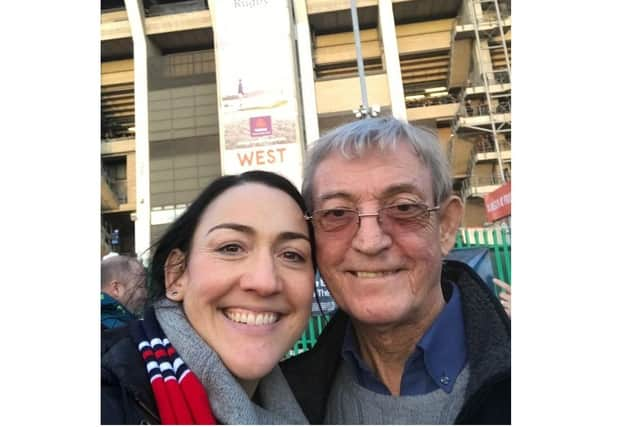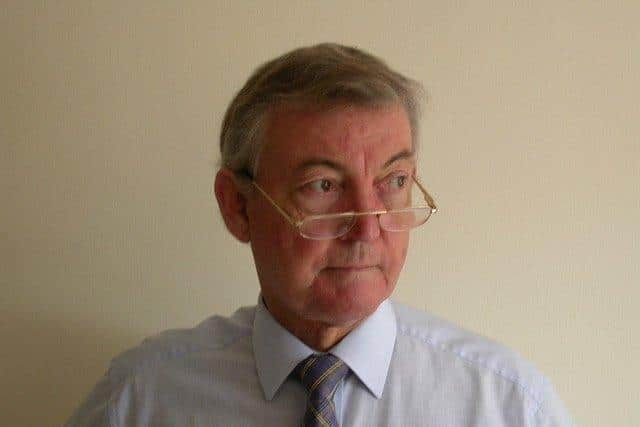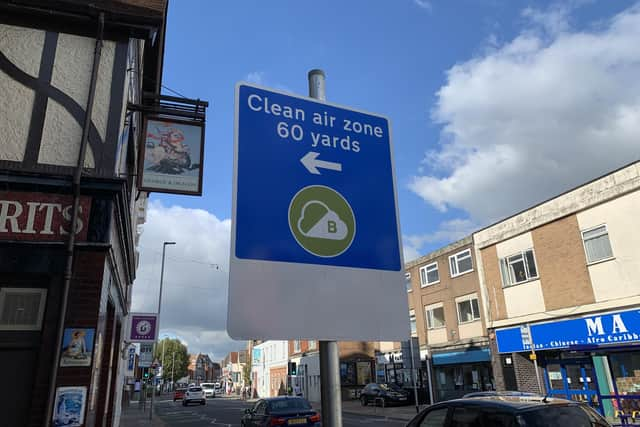Havant woman whose dad died with COPD welcomes new clean air zone in Portsmouth
and live on Freeview channel 276
Nutritionist Claire Snowdon-Darling from Langstone has spoken out in support of the chargeable zone that will cover the south-west of Portsmouth after her dad Malcolm died in October with a main diagnosis of chronic obstructive pulmonary disease (COPD).
Malcolm, who died at the age of 77, was born and raised in Portsmouth and lived there most of his life until moving to Langstone in the 1980s.
Advertisement
Hide AdAdvertisement
Hide Ad

Despite living with COPD and asthma for at least 10 years, it was in his last two years that it really started to have an impact on his quality of life.
‘COPD is insidious because in the beginning you just live with it but it gets worse and worse,’ Claire, 45, said.
‘It was a really helpless feeling to see him in the last couple of years. He was a proud man and it took away his dignity. He couldn’t even go out into his garden without getting out of breath.
‘I am convinced the pollution contributed to his illness, even possibly that it was the cause. He grew up in Portsmouth in the 1950s and 60s when there was a lot of pollution from coal and smog.
Advertisement
Hide AdAdvertisement
Hide Ad

‘Whenever we would go on holiday to places like Spain you could see a huge difference in him and his breathing.
‘The clean air zone is, in my opinion, long overdue.’
With the zone being implemented today (November 29) any buses, coaches, taxis, private hire vehicles and heavy goods vehicles of a certain age will be charged to enter part of the city.
According to data from Asthma UK and the British Lung Foundation the city is in the top 20 per cent of the most polluted boroughs in England and is home to 15,633 people with asthma and 4,933 with COPD - equating to 8 per cent of all patients registered at city surgeries.


And 95.4 per cent of schools in Portsmouth are in areas where levels of fine particulate matter are above the World Health Organisation’s previous guidelines from 2005.
Advertisement
Hide AdAdvertisement
Hide AdDoctor Andy Whittamore, clinical lead at Asthma UK and a GP at Portsdown Group Practice, added: ’So many of my patients with asthma and COPD are badly affected by poor air quality.
‘Pollution irritates people’s airways because the particles are small enough to get right into people’s lungs. It can make it hard for people to breathe and really affect their lives – some feel like they can’t go into the city, and they become prisoners in their own homes. Anything that reduces traffic emissions will definitely make a difference to them.’
Malcolm worked as the director of an independent consultancy to the space industry until his retirement in 2020.
A message from the Editor, Mark Waldron
We’ve just launched our best subscription deal ever. Subscribe here for unlimited access to all our coverage, including Pompey, for just 11p a day with the discount code BlackFriday50.
Comment Guidelines
National World encourages reader discussion on our stories. User feedback, insights and back-and-forth exchanges add a rich layer of context to reporting. Please review our Community Guidelines before commenting.
